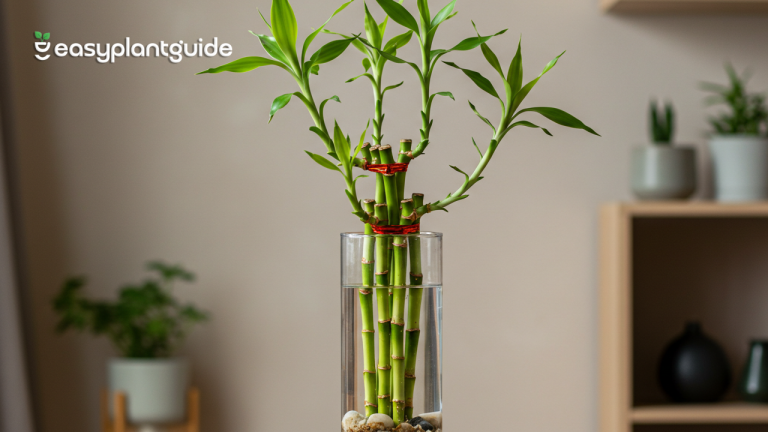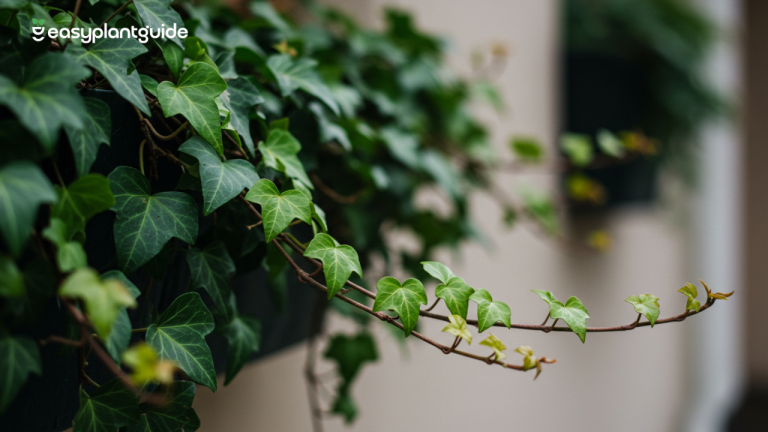Epipremnum Aureum Plant: 10 Amazing Benefits You Can’t Ignore
If you’ve ever walked into someone’s home and spotted a gorgeous trailing vine with heart-shaped leaves, chances are you’ve already seen the Epipremnum aureum plant. Also known as Pothos, Golden Pothos, Devil’s Ivy, or Money Plant, this stunning indoor vine has become a favorite worldwide. Loved for its resilience and lush foliage, it’s one of the most sought-after houseplants today.
But why is the Epipremnum aureum plant so popular? Apart from being incredibly easy to care for, it brings countless benefits to your home and lifestyle. From purifying the air and reducing stress to adding beauty and positive energy, this plant does it all. In this article, I’ll cover its origin, care tips, unique benefits, and symbolism across cultures. Ready to uncover why it’s adored by so many? Let’s dive in!

What is Epipremnum Aureum?
The Epipremnum aureum plant is a tropical vine native to Southeast Asia, belonging to the Araceae family and loved for its fast-growing, climbing or trailing habit. Highly adaptable and low-maintenance, it thrives indoors with minimal care, making it a favorite among both beginners and experts. Often nicknamed Devil’s Ivy because it’s nearly impossible to kill, this hardy houseplant continues to grow even in low light or neglect, proving why it’s considered one of the toughest and most reliable indoor plants.
Varieties of Epipremnum Aureum
Did you know there isn’t just one type of Epipremnum aureum plant? There are many exciting varieties, each bringing its own unique charm and personality to your home.
- Golden Pothos – This is the most common type, featuring vibrant green leaves streaked with golden-yellow variegation. It’s a classic favorite that brightens up any room with its warm tones.
- Marble Queen – Known for its stunning white and green marbled leaves, this variety looks like a living piece of art. It’s perfect if you want a plant that stands out with elegance and sophistication.
- Neon Pothos – With its bright lime-green foliage, Neon Pothos practically glows in the right lighting. It’s a great choice for adding a bold, eye-catching pop of color to your plant collection.
- Jade Pothos – This variety has solid deep-green leaves, making it ideal for minimalists who prefer simplicity. Its rich, glossy leaves bring a timeless and calming vibe to any space.
- Manjula Pothos – Featuring unique variegation with creamy-white splashes across green leaves, this variety feels exotic and rare. It’s a must-have for plant lovers who enjoy collecting unusual specimens.
How to Care for Epipremnum Aureum
The Epipremnum aureum plant is quite forgiving, but giving it proper care ensures faster growth, vibrant foliage, and healthier leaves. With just a little attention, this plant will reward you with lush greenery all year round.
1. Light Requirements
The Epipremnum aureum plant thrives best in bright, indirect light, where its leaves can maintain their rich color and variegation. While it can survive in low light conditions, its growth tends to slow down, and leaves may lose their patterns. Direct sunlight should be avoided, as it can scorch the leaves and cause brown patches.
2. Watering Needs
When it comes to watering, the plant prefers slightly dry soil between waterings. A good rule is to water once the top two inches of soil feel dry to the touch. Overwatering should be avoided because it can easily lead to root rot, one of the most common problems with this plant. During winter, the watering frequency should be reduced since growth naturally slows down.
3. Soil Preferences
For healthy growth, the Epipremnum aureum plant needs a well-draining potting mix that prevents the roots from sitting in water. A blend of peat moss, perlite, and coco coir provides the right balance of aeration and moisture retention. Heavy or compact soils should be avoided, as they tend to hold water and create poor conditions for the roots.
4. Temperature & Humidity
This plant grows well in warm environments with a temperature range of 65–85°F (18–29°C). It tolerates normal household humidity levels, making it perfect for most indoor settings. However, if the air feels too dry, occasional misting can help maintain leaf health and prevent the edges from turning brown.
10 Benefits of Epipremnum Aureum
The Epipremnum aureum plant isn’t just visually appealing—it also brings numerous benefits that enhance your home, health, and lifestyle. From purifying the air to uplifting your mood, this hardy vine truly deserves a spot in every indoor space.
1. Air Purification
One of the most remarkable benefits of the Epipremnum aureum plant is its ability to clean indoor air. It removes toxins like formaldehyde, benzene, and xylene, helping create a fresher and healthier environment for your family. Cleaner air can also improve overall respiratory health and energy levels.
2. Stress Reduction
Being around greenery has a calming effect on the mind, and the Epipremnum aureum plant is no exception. Its presence can reduce stress, lower blood pressure, and promote relaxation. Simply having this plant nearby can help you feel more peaceful and grounded throughout the day.
3. Boosts Focus and Productivity
Placing an Epipremnum aureum plant in your workspace can enhance concentration and mental clarity. Studies show that indoor plants help reduce fatigue and improve attention spans. This makes it a perfect companion for desks, home offices, or study areas.
4. Easy Décor Upgrade
The cascading vines and variegated leaves instantly elevate the aesthetics of any space. Whether in a hanging basket, on a shelf, or climbing a trellis, it adds a touch of elegance and freshness. Its versatile nature allows it to complement almost any interior style effortlessly.
5. Improves Sleep Quality
Keeping this plant in your bedroom can promote better sleep and relaxation. The presence of greenery encourages a calm, soothing atmosphere, reducing anxiety and helping you unwind naturally before bedtime.
6. Positive Energy and Feng Shui
Known as a Money Plant in Feng Shui, the Epipremnum aureum plant is believed to attract wealth, prosperity, and positive vibes. Placing it strategically around your home or office can enhance energy flow and foster a sense of abundance.
7. Low Maintenance and Longevity
This plant is extremely resilient, thriving even with minimal attention. Its low-maintenance nature makes it ideal for beginners, busy individuals, or anyone who wants a long-lasting, beautiful indoor plant without much effort.
8. Natural Humidifier
The Epipremnum aureum plant naturally releases moisture through transpiration, slightly increasing humidity levels indoors. This can help prevent dry skin, irritation, and respiratory discomfort, especially in dry indoor environments during winter.
9. Improves Mental Wellbeing
Caring for a plant like Epipremnum aureum has therapeutic benefits. It promotes mindfulness, reduces feelings of anxiety, and fosters a sense of accomplishment as you watch it grow and thrive over time.
10. Encourages Creativity
Having greenery around your home or workspace can spark creativity and inspiration. The vibrant leaves and trailing vines of the Epipremnum aureum plant provide visual stimulation that can enhance problem-solving and imaginative thinking.
Common Problems and Easy Fixes
| Problem | Cause | Easy Fix |
|---|---|---|
| Yellow Leaves | Overwatering, poor drainage | Let soil dry, improve drainage, reduce watering |
| Brown Leaf Tips | Low humidity or excess fertilizer | Mist leaves, trim tips, flush soil occasionally |
| Leggy Growth | Insufficient light | Move to brighter indirect light, prune for bushier growth |
| Root Rot | Waterlogged soil | Repot in well-draining mix, cut off rotten roots |
| Pest Infestation | Mealybugs or spider mites | Wipe leaves, use neem oil or insecticidal soap |
Propagation of Epipremnum Aureum Plant
Want more plants for free? The Epipremnum aureum plant is one of the easiest houseplants to propagate, making it perfect for beginners and plant lovers who want to expand their collection.
To start, cut a healthy stem that has at least two to three nodes, since roots develop from these points. Place the cutting in a glass of water and leave it in a bright spot with indirect sunlight until roots begin to form. Once the roots reach about two to three inches long, transfer the cutting into soil to encourage stronger growth.
Keep the new plant in indirect light to avoid stressing the young roots, and water it lightly until it becomes well established. With this simple process, you can enjoy endless new vines of Epipremnum aureum and even share them with friends.
Decorating with Epipremnum Aureum

This plant is incredibly versatile when it comes to styling:
- Use it as a hanging plant in macramé holders.
- Train it to climb a moss pole or trellis.
- Place it on bookshelves for a cascading effect.
- Add it to your office desk for greenery.
- Use small cuttings in glass jars for minimalist décor.
Epipremnum Aureum vs. Similar Plants
The Epipremnum aureum plant is often mistaken for other indoor vines, particularly the Philodendron, because of their similar heart-shaped leaves. While they share some visual traits, there are clear differences in leaf texture, durability, and care requirements that set them apart.
Pothos leaves are thicker, waxy, and often display striking variegation in shades of green, yellow, or white. This makes the leaves more resilient and able to withstand lower light conditions and occasional neglect. In comparison, Philodendron leaves are softer, thinner, and usually solid green, giving them a more delicate look that needs consistent care.
Both plants are beautiful and can enhance the aesthetics of any room. However, the Epipremnum aureum plant is generally the hardier option. It adapts well to different environments, requires less maintenance, and continues to thrive even when conditions aren’t perfect, making it ideal for beginners or busy plant owners.
5 Quick Tips for Beginners
If you’re new to plant care, here’s your cheat sheet to keep your Epipremnum aureum plant thriving:
- Don’t Overwater – One of the biggest mistakes is giving too much water. Always let the top layer of soil dry out before watering again to prevent root rot and keep your plant healthy.
- Place in Bright, Indirect Sunlight – While this plant can survive in low light, it grows best in bright, indirect sunlight. Avoid direct sunlight, as it can scorch the leaves and cause brown patches.
- Prune Regularly – Regular pruning helps maintain a bushy, full appearance and prevents leggy growth. Trim long vines and remove any yellow or damaged leaves to encourage new growth.
- Wipe Leaves Occasionally – Dust can accumulate on leaves, blocking sunlight and affecting photosynthesis. Gently wipe the foliage with a damp cloth to keep your plant clean and vibrant.
- Use a Moss Pole or Support – If you want larger, dramatic leaves, provide a moss pole or trellis for the vines to climb. This encourages vertical growth and gives your plant a fuller, more striking appearance.
Conclusion
The Epipremnum aureum isn’t just another trendy houseplant—it’s a powerhouse of benefits, beauty, and symbolism. From improving indoor air quality to adding charm to any space, this hardy vine truly lives up to its nicknames. Whether you call it Golden Pothos, Devil’s Ivy, or Money Plant, one thing is clear: it deserves a spot in every home.
Explore more plant blogs and grow your green journey with us.







